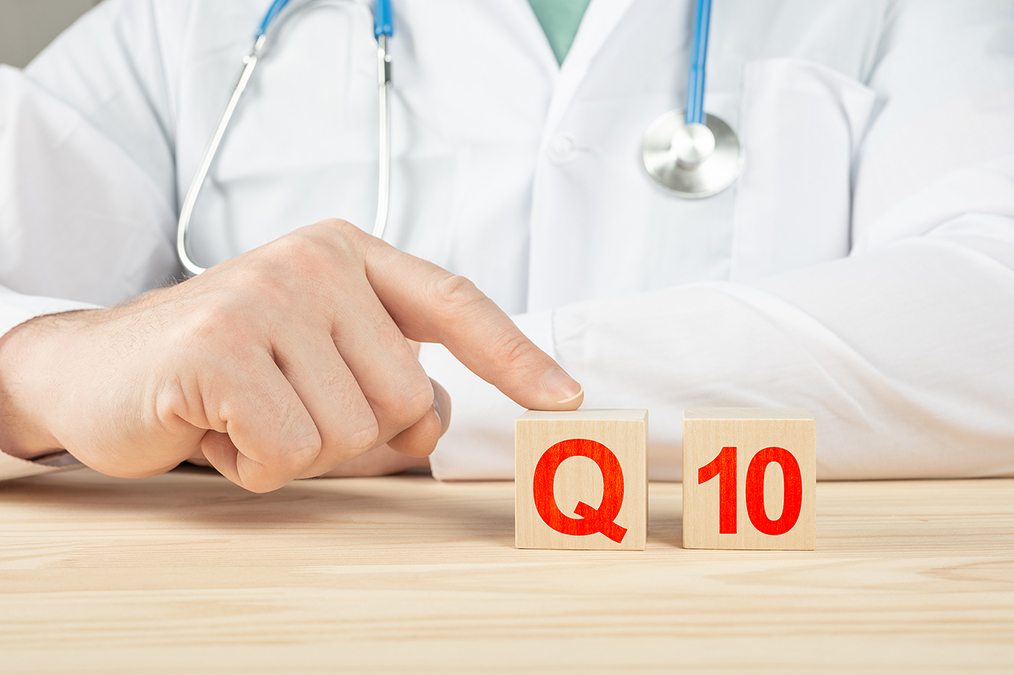 Because hemochromatosis is a genetic disease, doctors generally think there is little you can do to tackle it naturally.
Because hemochromatosis is a genetic disease, doctors generally think there is little you can do to tackle it naturally.
But a new study from the journal Clinics and Research in Hepatology and Gastroenterology shows that those with hemochromatosis are drastically lacking in one specific chemical, widely available in supplement form.
Loading up on this supplement may or may not heal hemochromatosis, but it will definitely help heal the damage done by iron overload.
Coenzyme Q10 is a vitamin-like substance that has enjoyed huge attention in medical research over the past few decades, because of two main discoveries:
- 1. It is a very strong antioxidant and has proven to be a useful treatment against many oxidative stress disorders.
2. It helps provide energy to cells and is thus found everywhere in the body.
Accordingly, a research team led by the Universidad de Buenos Aires in Argentina decided to find out whether hemochromatosis patients had lower levels of this substance in their blood than their healthy peers.
They recruited 38 hemochromatosis patients (32 men and six women) who had been newly diagnosed with hemochromatosis and who were not being treated for the condition.
They also asked 25 healthy volunteers to serve as a control group. None of them showed any sign of iron overload or liver diseases, and none of them had the hemochromatosis gene mutations.
They drew blood from all of their subjects and tested it for a wide variety of substances, including Coenzyme Q10, iron, ferritin (an iron-carrying protein), transferrin (a substance that helps metabolize iron), and vitamins A, C, and E (all antioxidants).
They discovered some interesting trends:
- 1. Compared with the healthy subjects, the hemochromatosis patients had much lower levels of Coenzyme Q10: 0.70 versus 0.31 micromolars.
2. Those with elevated iron levels had lower Coenzyme Q10 levels than those with lower iron did.
3. Vitamin E was a lot lower in the hemochromatosis group than it was in their healthy peers.
This is a promising finding, because it suggests that some of the damage caused by hemochromatosis to your liver, kidneys, heart, and other organs can be limited by taking supplements that contain Coenzyme Q10 and vitamin E, two very strong antioxidants.
The recommended Coenzyme Q10 daily dose is between 100 mg and 200 mg, the higher dose being recommended for smokers and for people who take drugs that deplete the Coenzyme Q10 in their bodies.
It may not be possible to obtain high amounts from food, but you can find it in organ meats (livers, hearts, and kidneys), fatty fish (trout, mackerel, salmon, and sardines), meat, soybeans and tofu, soybean oil, lentils, pistachios, peanuts, sesame seeds, cauliflower, and broccoli.
Obviously if you have hemochromatosis, it’s not good to eat much meat as it’s high in iron.
The recommended daily vitamin E dose for adults is 15 mg, or 22 IU. You can easily find this in almonds, sunflower seeds, sunflower and safflower oils, peanuts and peanut butter, spinach and collard greens, pumpkin, red bell peppers, asparagus, mango, tomato, papaya, and avocado.

 Overcoming IBD
Overcoming IBD Multiple Sclerosis
Multiple Sclerosis Banishing Bronchitis
Banishing Bronchitis Gum Disease Gone
Gum Disease Gone Overcoming Onychomycosis
Overcoming Onychomycosis Neuropathy No More
Neuropathy No More The Prostate Protocol
The Prostate Protocol Brain Booster
Brain Booster
 Ironbound
Ironbound
 Solution for Shingles
Solution for Shingles
 The Bone Density Solution
The Bone Density Solution
 The Ultimate Healing Protocol
The Ultimate Healing Protocol
 The Parkinson's Protocol
The Parkinson's Protocol
 The Chronic Kidney Disease Solution
The Chronic Kidney Disease Solution
 Overthrowing Anxiety
Overthrowing Anxiety The Fatty Liver Solution
The Fatty Liver Solution The Hypothyroidism Solution
The Hypothyroidism Solution
 The End of Gout
The End of Gout The Blood Pressure Program
The Blood Pressure Program
 The Oxigized Cholesterol Strategy
The Oxigized Cholesterol Strategy
 Stop Snoring And Sleep Apnea Program
Stop Snoring And Sleep Apnea Program
 The Arthritis Strategy
The Arthritis Strategy The Vertigo & Dizziness Program
The Vertigo & Dizziness Program The 3-Step Diabetes Strategy
The 3-Step Diabetes Strategy Hemorrhoids Healing Protocol
Hemorrhoids Healing Protocol The Erectile Dysfunction Master
The Erectile Dysfunction Master Weight Loss Breeze
Weight Loss Breeze The IBS Program
The IBS Program The Insomnia Program
The Insomnia Program The Migraine and Headache Program
The Migraine and Headache Program The Neck Pain Solution
The Neck Pain Solution The Menopause Solution
The Menopause Solution The Ejaculation Master
The Ejaculation Master The TMJ Solution
The TMJ Solution The Acid Reflux Solution
The Acid Reflux Solution The Fibromyalgia Solution
The Fibromyalgia Solution The Psoriasis Strategy
The Psoriasis Strategy